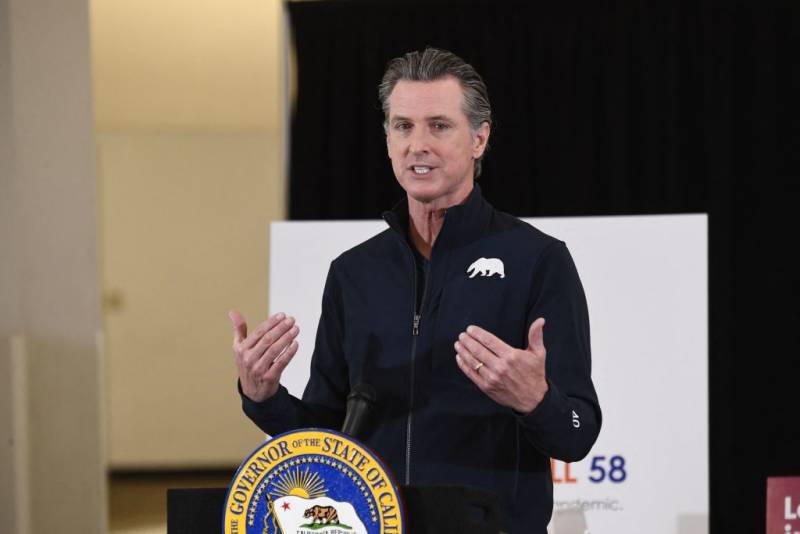California Gov. Gavin Newsom’s use of emergency powers to make far-reaching policies during the pandemic was upheld Wednesday by state appellate judges who rejected a lower court finding that the Democrat had done too much unilaterally.
Three judges from the 3rd District Court of Appeal in Sacramento ruled unanimously that the prior judge “erred in interpreting the Emergency Services Act to prohibit the Governor from issuing quasi-legislative orders in an emergency."
“We conclude the issuance of such orders did not constitute an unconstitutional delegation of legislative power,” Presiding Justice Vance Raye wrote in ruling on a lawsuit brought by Republican state legislators.
The court already had stayed the earlier ruling by Sutter County Superior Court Judge Sarah Heckman that Newsom unconstitutionally usurped the Legislature’s power.
Heckman more broadly issued an injunction — which also had been temporarily halted by the appeals court — barring Newsom from issuing any orders under the California Emergency Services Act that amended state laws or legislative policy.
Newsom did so dozens of times during the pandemic in what amounted to one-man rule, Assemblymen James Gallagher and Kevin Kiley said.
The appeals court said the lower court rulings raised “matters of great public concern regarding the Governor’s orders in the ongoing COVID-19 pandemic emergency” but agreed with the governor’s contention that he acted within the broad emergency authority granted him under state law in times of crisis.
The appeals court relied on a section of the law that says the governor shall “have complete authority over all agencies of the state government and the right to exercise within the area designated all police power vested in the state by the Constitution and laws of the State of California.”
Kiley and Gallagher said they would appeal to the state Supreme Court.
Newsom issued the nation’s first statewide lockdown order in March 2020 and followed up with a torrent of executive orders, acting unilaterally on everything from halting evictions to allowing marriages to be conducted by video or teleconference.
He also suspended school deadlines, gave consumers and businesses more time to pay taxes, changed the rules for public meetings, suspended medical privacy rules, and allowed grocery stores to hand out free single-use bags, among many other changes.
The lawsuit itself centered on just one executive order requiring election officials to open hundreds of locations statewide where voters could cast ballots, despite the potential health risk.
—Don Thompson, Associated Press

